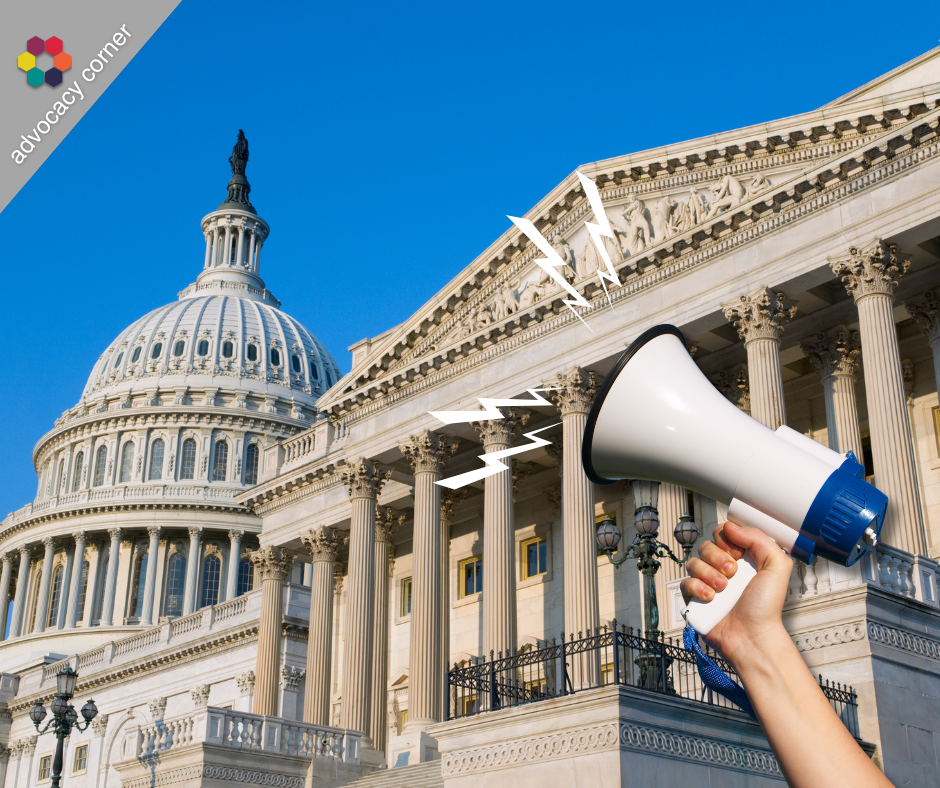
Welcome to Advocacy Corner, a monthly series of nonpartisan advocacy posts by the Natrona Collective Health Trust, aimed at advancing our mission of improving the health of Natrona County residents. Each month, we explore key issues that impact community well-being, providing insights and information to empower residents. If you have a topic suggestion or question, please reach out to Rachel Bouzis, Director of Policy & Learning.
To say that it’s been a tense few days in the nonprofit world is a gross understatement. Like many of you, the Trust has closely been following the Trump administration’s budgetary memorandum intended to “temporarily pause all activities related to obligations or disbursements of all federal financial assistance.” Again, like so many of you, we spent much of the week refreshing our browsers for the latest news on what this order meant and crafting an advocacy plan before we learned the order was ultimately rescinded Wednesday morning. Though this was a short-term best-case scenario for our nonprofits and the thousands of Natrona County residents they serve, it’s important to learn from this scare. The threat may have passed (at least for now), but this situation highlights why we must be proactive.
Though it would be impossible to be completely prepared for policy changes that negatively impact our community’s most vulnerable residents, we need to stay agile and ready. First and foremost, we must stay informed. The Wyoming Nonprofit Network, with its national connections and local statewide partnerships, is an excellent source for the latest news and advocacy on your behalf. WNN’s national partner, the National Council of Nonprofits, was part of a lawsuit to block this action immediately after it was announced. Locally, WNN was working rapidly behind the scenes with individual nonprofits to learn about possible impacts.
Second, have your story ready. Rather than talking about your federal and state grants in terms of dollars, talk about them in terms of impact—or more importantly, in terms of people. What does your $100,000 federal grant do for your participants? Who benefits from these services? For example, if your grant pays for a staff member whose duties include testing unhoused individuals for hepatitis B, your story might sound something like: “disease prevention and treatment for vulnerable populations by administering 104 tests in 2024—approximately 25 percent of the unhoused population in Natrona County.” You should also be ready to explain what would happen if that $100,000 weren’t available: “Without this funding, hepatitis B and other communicable diseases are at a higher risk of spreading across our unhoused and housed populations. This would not only result in preventable suffering and death, but it would further stress our hospital system with more uncompensated care claims, in addition to costing our staffer their job.”
Third, share your story with your elected officials. Make sure your federal and state representatives know how effectively and responsibly you’re using grant dollars to make our community better. While the recent scare was federal, it’s critical that you’re also communicating with state officials as they consider budget cuts and other legislation that could impact your work. The more voices (with impact-centered stories) they hear from, the harder we’ll be to ignore. It may also be worth mentioning to our elected officials that in 2022, Wyoming received 49 percent of its state revenue from federal funding, the fifth most in the country. This money supports essential services like transportation, public education, community development and Medicaid—all programs we depend on.
Finally, know that the Health Trust stands firmly behind you. You are scared for the future of your organization, employees and mission. We’re fully aware that our financial support is a mere fraction of public grants: for reference, in 2023, Wyoming-based and out-of-state foundations granted $141 million, according to WyoFunders; Wyoming received $3.5 billion in federal funds in 2022.
We are staying informed, staying involved and staying in this fight. We’re working with elected officials to learn more about their plans, and we’re exploring advocacy options to defend you. Additionally, we remain as committed as ever to health equity in our pursuit of the health and well-being of Natrona County residents. You are doing the indispensable work of providing for our most vulnerable populations, and our community is better because of it. As much uncertainty as we’re all facing, that’s the one thing we’re sure of.









